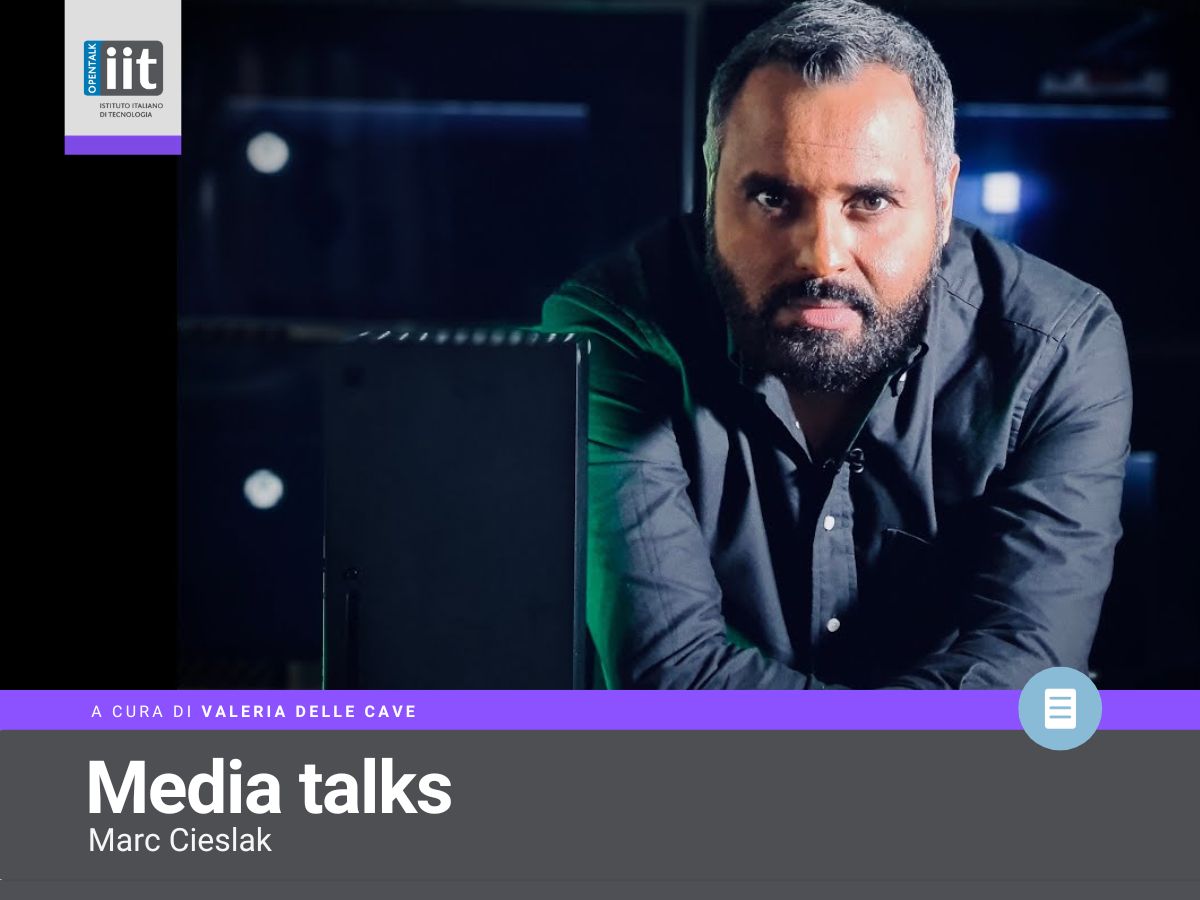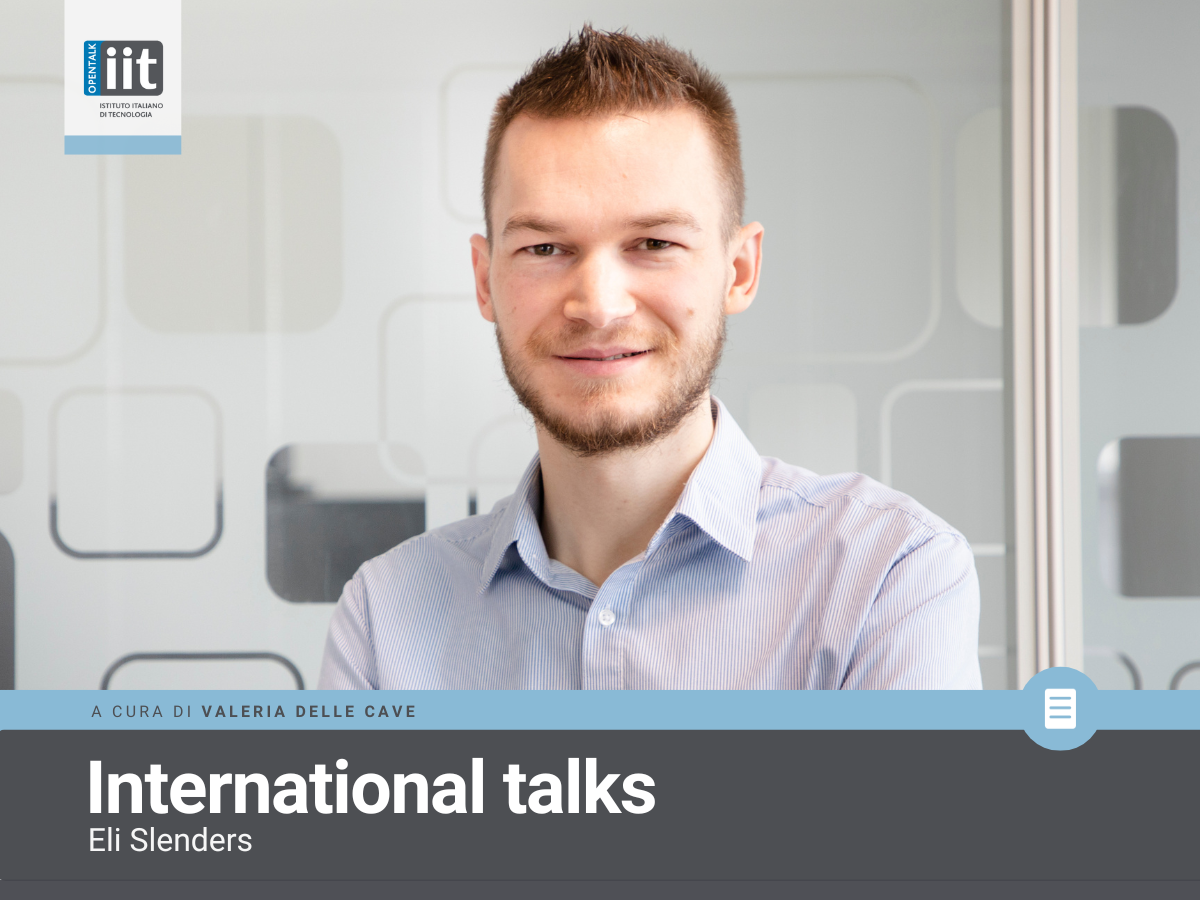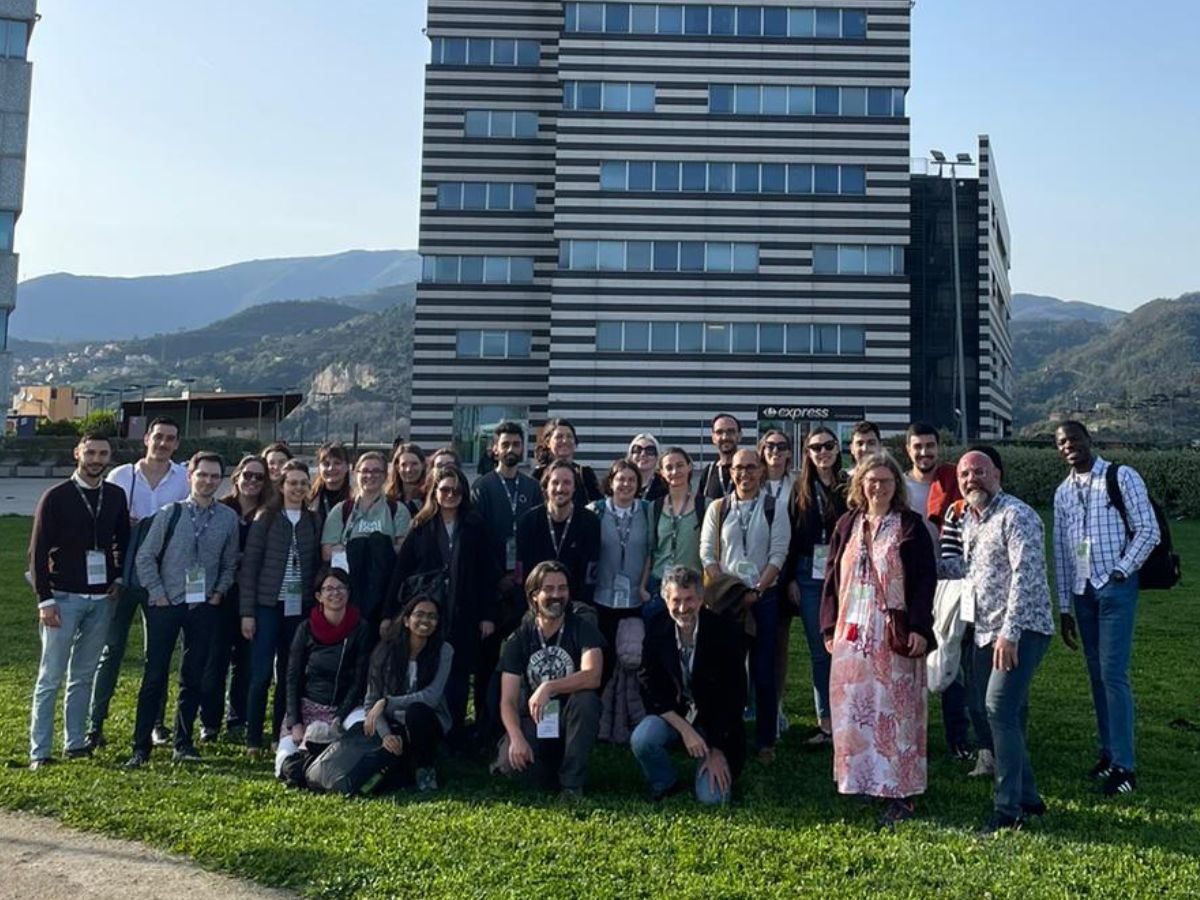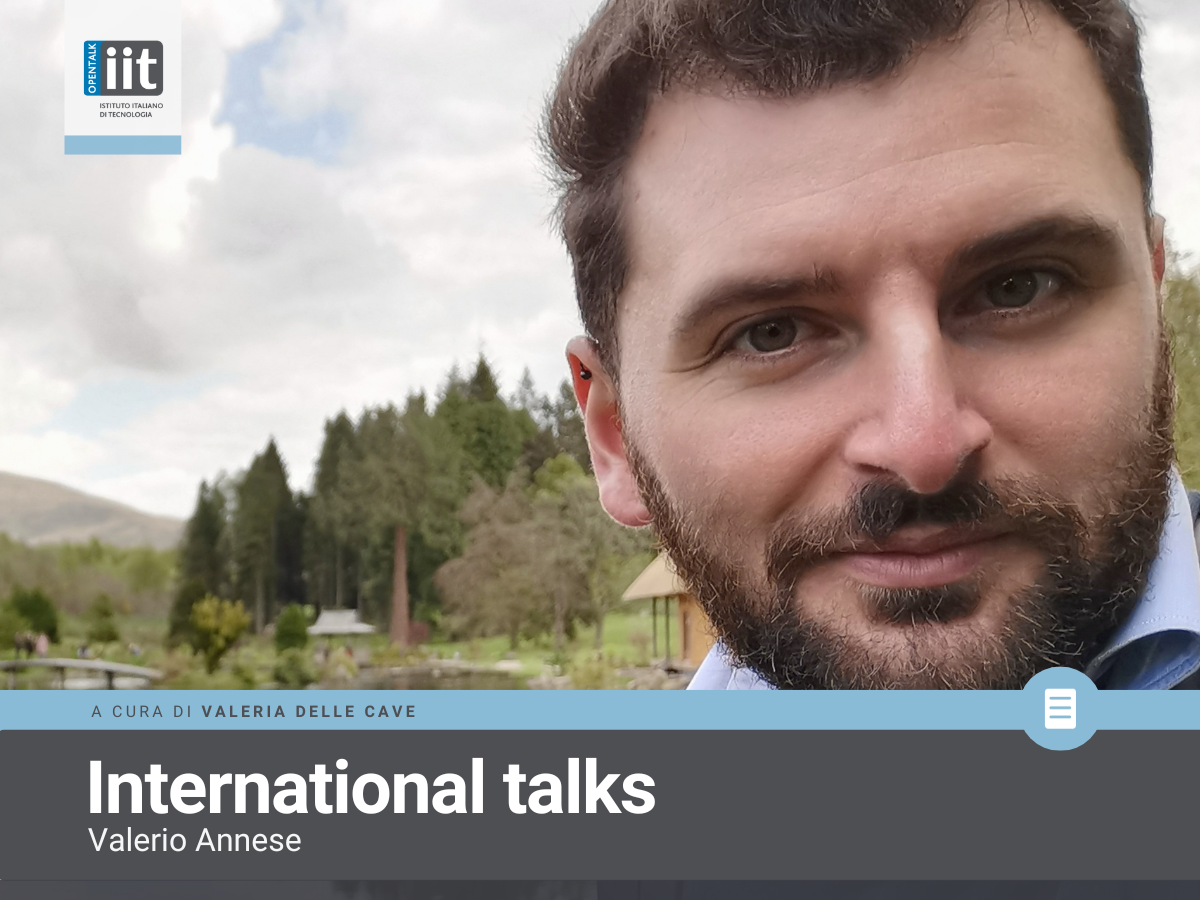Interview with Marc Cieslak, News Technology Correspondent and Broadcaster
Marc Cieslak is a technology journalist working at BBC in London, as News Technology Correspondent and Broadcaster; he visited IIT in September 2023 during the celebration of the 20th anniversary of the Institute, when he moderated a public talk with IIT Associate Director for Robotics Barbara Mazzolai about excellence research in bioinspired soft robotics. Marc is an experienced TV Presenter, technology journalist and film maker, who has covered everything from the rise of the tech giants like Amazon and Google, to interviewing legendary movie makers such as Stephen Spielberg and Sir Peter Jackson, reporting from locations like the depths of CERN’s Large Hadron Collider, to a world first TV film made inside a video game. He considers his job isn’t just about reporting on the latest innovations but also how technology affects all our lives.
He is currently working on BBC’s flagship technology TV programme, Click. BBC is considered one of the most reliable sources of information in the world, also for its accountability when it comes to scientific topics.BBC is also part of the European Broadcasting Union (EBU), the major association of public service media organisations in Europe, sharing and co-operating across Europe and beyond, to which the Italian RAI belongs too.
We asked Cieslak some questions about his professional experience, while he was travelling back and forth from the UK to different places in the world.
Marc, how did you become a tech journalist?
I’ve always been fascinated by science and technology. At university, I trained as a multidisciplinary designer. Upon graduation a design project I was working on attracted the attention of a TV show in the U.K. I was invited to meet the TV show’s production team; we hit it off immediately, they had an open researcher position, I applied and secured the role. I realised that my skills were better suited to a career in television, so I accepted the position and retrained, initially as a TV Producer, then a reporter. My first TV role was with a production company that specialised in science and tech programs. Over the course of my career, I’ve worked in a number of fields and subject areas, but for the last decade my lifelong interest in science and tech has come full circle, becoming my professional specialisation.
What do you think is the best recipe for a news media to tell science and technology?
Science and tech can often be jargon-filled or seem mysterious and indecipherable for mainstream audiences. It’s important to make science and tech stories relatable. How do they affect the audience? How could they potentially impact the audience’s lives? Not every story can be categorised in this way, so it’s important to demystify the core of the story and make it as understandable as possible for as wide an audience as possible.
You have made documentaries and reports on the BBC’s main TV News bulletins, BBC radio, and podcasts, as well as the BBC’s TV program, Click. Social media and the internet have brought great changes to the information industry. What is your experience with these new kinds of platforms?
Stories are told in different ways for different platforms. While the information remains the same, the way in which it’s told differs greatly across radio, TV, and online. In radio, every aspect must be described to the audience. In TV, it’s possible to show large amounts of the story, illustrating with action and dialogue. Online video uses some of the language of TV but has evolved its own vernacular (it often has to work on mobile screens, phones, or tablets). Online storytelling tends to be faster, rapidly getting to the crux of a story.
In your career, you have covered a variety of subjects. Have you ever covered a science or tech story coming from Italy? What is your perception of our country in terms of science and innovation?
I’ve been lucky enough to travel the world and report from many locations over the course of my career. I’ve reported from and made stories about innovations born in Italy in the past. Italy has a rich history of scientific and technological inquiry, and I often find Italian scientists and engineers approach challenges in ways that lead to uniquely elegant solutions to problems.





